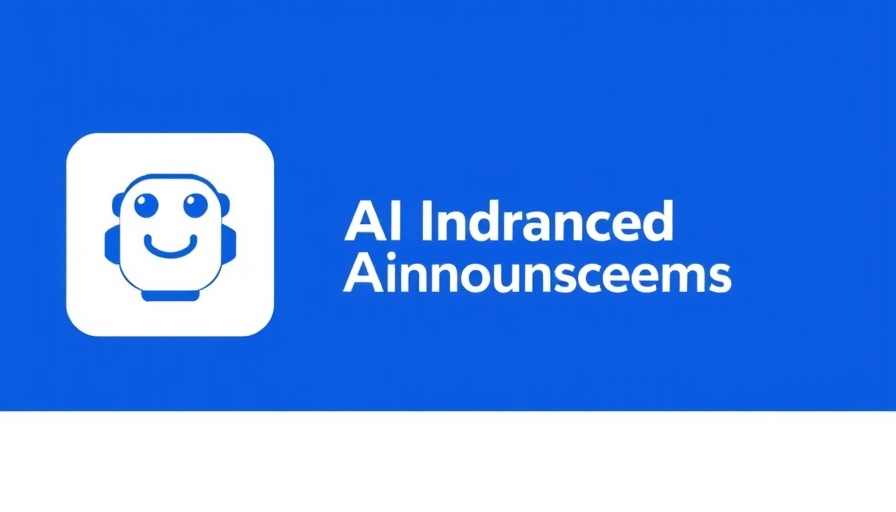
Nvidia’s Warning: A Double-Edged Sword for Job Markets
As technology continues to advance, the conversation around artificial intelligence (AI) and its effects on the job market intensifies. Jensen Huang, the CEO of Nvidia, recently expressed significant concerns about AI potentially displacing up to 20% of jobs by 2030. He highlights the necessity for continuous innovation within businesses to combat this risk. The future employment landscape appears precarious as numerous industry leaders echo Huang’s sentiments, foreseeing a challenging shift in how work is performed.
Raising Alarm Bells: Predictions from Industry Experts
Huang's remarks were made in an interview with CNN's Fareed Zakaria, in response to Dario Amodei, CEO of Anthropic. Amodei's formidable warning includes predictions that AI could eliminate half of white-collar, entry-level positions, pushing overall unemployment rates to alarming heights. This dire outlook is bolstered by a survey performed in 2024 that found 41% of executives foresee AI reducing workforce numbers at thousands of firms. Such statistics underline the urgency for discussions on the workforce evolving alongside technology.
AI: The Balancing Act of Innovation and Employment
Despite his cautionary tone, Huang advocates for the potential AI has to boost productivity and create new job roles. His belief centers on the notion that innovation does not merely replace jobs; it can also give rise to new industries and opportunities. This perspective is gaining traction among companies looking to leverage AI technologies to enhance operational efficiency. It’s imperative, according to Huang, for organizations to maintain a mindset focused on generating new ideas to ensure workforce stability.
Changing Roles: How AI Is Shaping Job Functions
Interestingly, Huang noted that AI's impact on jobs is already evident in his own role at Nvidia. Many are already experiencing similar transformations, with companies adopting AI tools like ChatGPT to streamline processes—from drafting job advertisements to creating marketing strategies. While some industry voices, such as Meta's Yann LeCun, argue that AI will transform rather than wholly eliminate jobs, the reality remains that adaptation to these technologies is crucial across all sectors.
The Mixed Bag of AI Gains and Losses
The discussion surrounding AI is increasingly polarized. For instance, while companies like Microsoft rejoice in the cost savings achieved through AI—over $500 million in call center efficiencies—this success often comes at the price of significant layoffs. Reports indicate that Microsoft’s AI advancements led to a workforce reduction of 15,000 positions. Ford's CEO further predicts that AI could replicate several roles, adding to the growing anxiety surrounding job security.
Future Insights: Preparing for an AI-Driven Workforce
As the debate over AI's implications for employment continues, it highlights a pressing need for proactive measures. For workers and businesses alike, understanding the evolving landscape becomes essential for future job security. Emphasizing upskilling and training will be paramount to ensure individuals are equipped with the necessary skills to thrive in a technology-driven environment.
What Can We Learn From This Situation?
As we reflect on Huang’s insights, it becomes clear that while AI presents challenges, it also offers the potential for significant opportunities. Acknowledging these realities, individuals should consider ways to adapt to the shifting job market, perhaps by investing in continued learning and engaging with emerging technologies.
In conclusion, as AI continues to advance, it is crucial to stay informed and adaptable. The future may hold uncertainties, but understanding and navigating these changes can empower us to thrive amid the transformations ahead. Don't hesitate to explore new ways to enhance your skills and embrace the future of work!
 Add Row
Add Row  Add
Add 




 Add Row
Add Row  Add
Add 

Write A Comment